Find Your Perfect Wood Product
If you find a product you like, reach out to us for more details and assistance.
Jatoba (Brazilian cherry) slabs
Jatoba is an exotic wood that runs from salmon-red to orange-brown. It darkens into a russet to reddish-brown color after drying, and it is frequently marked with dark streaks. It is reported to have good strength qualities and can be used in structural applications for which Oak would be suitable. It is reported to be similar to the African species, Tchitola, Black locust, and is superior to White oak.
Length: ~84 inches
Thickness: 12/4
- Common Name(s): Jatoba, Brazilian Cherry
- Scientific Name: Hymenaea courbaril
- Distribution: Central America, southern Mexico, northern South America, and the West Indies
- Tree Size: 100-130 ft (30-40 m) tall, 2-4 ft (0.6-1.2 m) trunk diameter
- Average Dried Weight: 56 lbs/ft³ (900 kg/m³)
- Janka Hardness: 2,690 lbf (11,950 N)
- Crushing Strength: 11,860 lbf/in² (81.8 MPa)
Heartwood: Salmon red to orange-brown, which tends to darken to a russet red to reddish brown with age.
Sapwood: Much lighter, usually a yellowish white color.
Grain: Usually interlocked, with a medium to coarse texture.
Texture: Good natural luster.
Rated as very durable regarding decay resistance, and it is also resistant to most insect attacks.
Jatoba is generally easy to work with, though it can be difficult to plane due to its interlocked grain. It turns, glues, and finishes well, although it can have a blunting effect on cutting edges.
- Furniture
- Specialty wood items

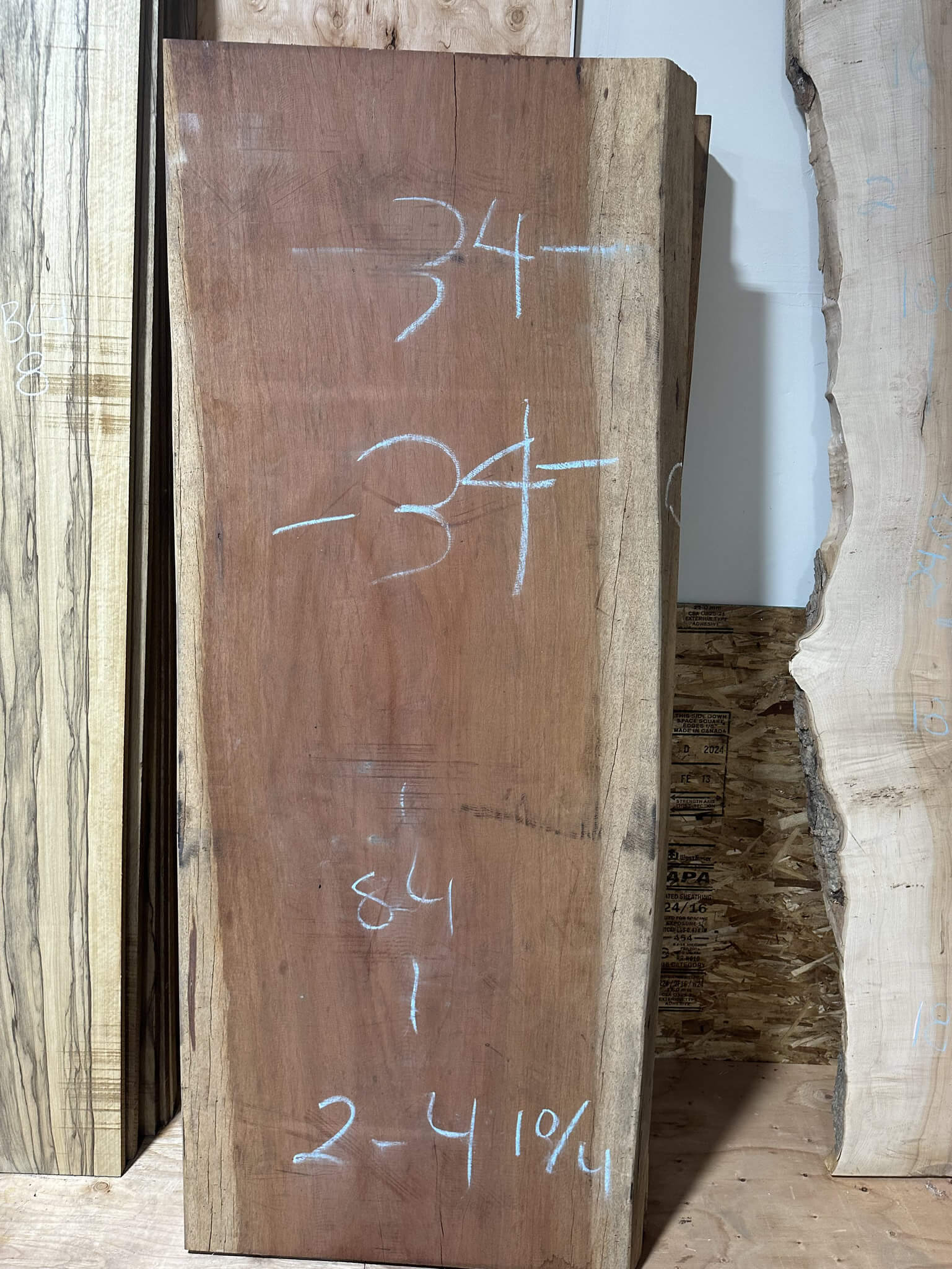
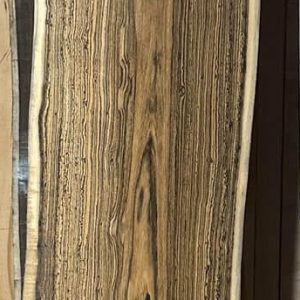
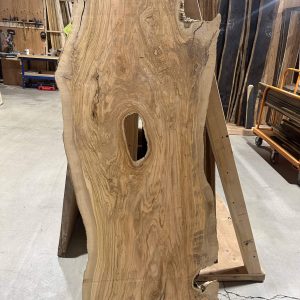
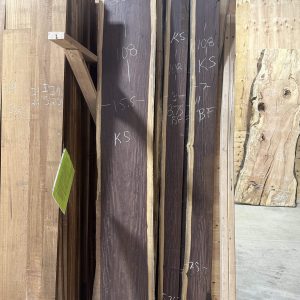
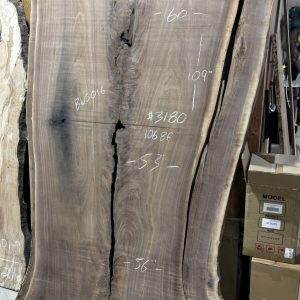
Jatoba is known for its excellent strength and hardness, making it ideal for high-traffic flooring and other applications requiring durability. The wood is also appreciated for its rich color and luster.
Note: Jatoba can sometimes cause allergic reactions and skin irritation in some individuals. It is advisable to take appropriate precautions when working with this wood.